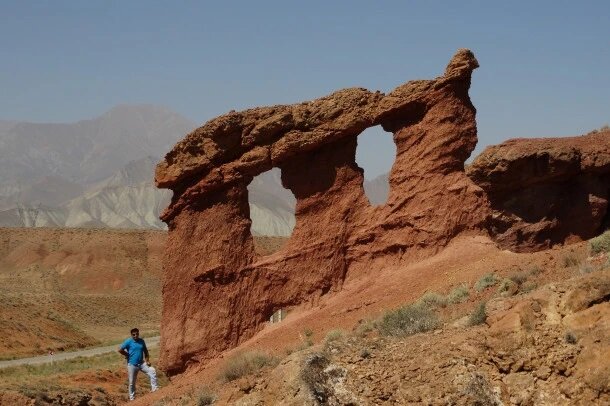Iran’s Aras Geopark gains global recognition

TEHRAN –The addition of Iran’s Aras Geopark to the UNESCO Global Geoparks network has been endorsed, UNESCO’s official website has announced.
UNESCO’s Executive Board approved the addition of 18 geoparks from across the world including Iran’s Aras Geopark to the global network on Thursday.
This brings the total number of geoparks to 195 in 48 countries.
Situated in East Azarbaijan province, Aras Geopark covers an area of about 1670 square kilometers, sprawling across the whole Jolfa county. The topography is generally extremely steep and forms astonishing landscapes so the highest point in the Jolfa region is the Kiyamaki mount with 3347 meters and the lowest points include the northern boundary and the Aras River valley with 720 to 390 meters.
The property has an appropriate geo-tourism attraction, because of its mountainous landscapes, outcropping of different sedimentary and igneous rocks, diversity in tectonic structures, semi-cold and semi-arid climate, and diverse flora and fauna.
The Aras River forms the northern boundary of the geopark, serving as the dividing line between Iran, Armenia, and Azerbaijan. According to UNESCO within the geopark’s region, there are three designated protected areas. The area’s conservation efforts are significantly influenced by its rich wildlife variety and the existence of endangered species like the Caucasian Black Grouse, Red Deer, Armenian Ram, and Leopard.
The UNESCO Global Geopark label was created in 2015. It recognizes geological heritage of international significance. Geoparks serve local communities by combining the conservation of their significant geological heritage with public outreach and a sustainable approach to development.
Experts say geoparks usually promote awareness of geological hazards, including volcanoes, earthquakes, and tsunamis and many help prepare disaster mitigation strategies with local communities. Moreover, they yield records of past climate changes and are indicators of current climate changes as well.
ABU/AM
